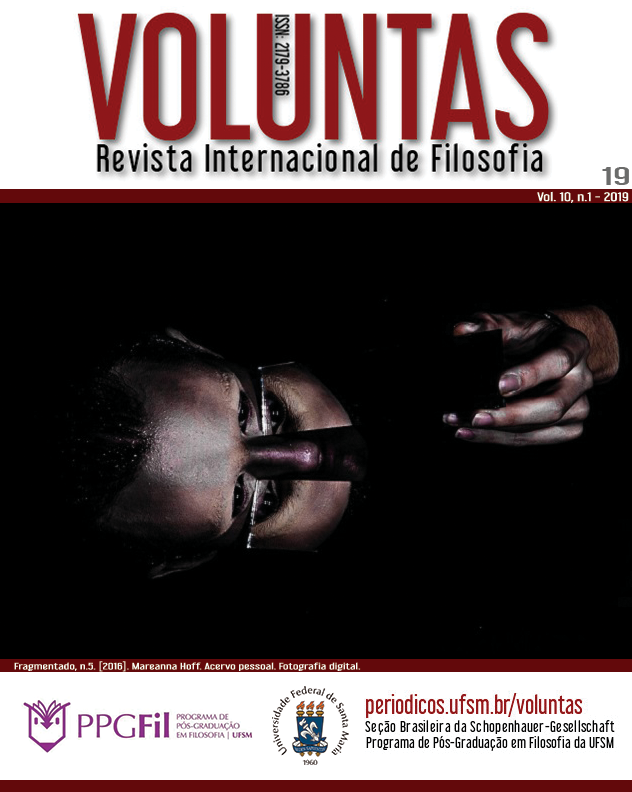Schopenhauer on space, time, causality and matter: a physical reexamination
DOI:
https://doi.org/10.5902/2179378636292Keywords:
Space, Time, Matter, Modern physicsAbstract
According to Schopenhauer, Kant’s arguments about the transcendental ideality of space and time have implications for matter through the concept of causality and the principle of sufficient reason. In this article, I examine to what extent this principle, together with space, time and causality can be considered a priori concepts in the light of classical and modern physics. The concepts of matter and field in present day physics, and their possible a priori fundaments, are revisited in a modern context.
Downloads
References
KANT, I. Critique of Pure Reason. Trad. N. Kemp Smith, London: Macmillan, 1929.
SCHOPENHAUER, Arthur. The World as Will and Representation (W I and II). Trad. E. F. Payne, 1966, Dover.
SCHOPENHAUER, Arthur. On the Fourfold Root of the Principle of Sufficient Reason (G). Trad. E. F. J. Payne. 1974, Open Court.
HACYAN, Shahen. Física y metafísica del espacio y el tiempo: la filosofía en el laboratorio, Mexico: Fondo de Cultura Económica, 2004.
HACYAN, Shahen. On the Transcendental Ideality of Space and Time in Modern Physics, Kant-Studien, 97, 2006, pp. 382-395.
EULER, Leonard. Mechanica, 1736. Trad. I. Bruce. http://www.17centurymaths.com/contents/mechanica1.html
DUHEM, Pierre. La théorie physique, 1914. Fac-similé Paris: Vrin, , 1997. Chap. IV
JAMMER, Max. Concepts of Mass in Classical and Modern Physics, Harvard University Press, 1961.
MACH, Ernst. The Science of Mechanics. A Critical and Historical Exposition of its Principles, 1893. Trad. Thomas J. McCormick. Chap. II, Sect. V.
EINSTEIN, Albert, foreword to Jammer, M. Concepts of Space, 1954. Harvard University Press.
HEISENBERG, Werner. Goethe’s View on Nature and Science, In: Across the Frontiers, 1990. Trad. Peter Heath. Ox Bow Press. Chap. X.
HEISENBERG, Werner. Kantian philosophy, in Physics and beyond, (Der Teil und das Ganze, 1969). Trad. 1971.
WIGNER, Eugene. The Unreasonable Effectiveness of Mathematics in the Natural Sciences, Comm. Pure and Applied Math., 13, 1960, pp. 1-14.
Downloads
Published
How to Cite
Issue
Section
License
The submission of original manuscripts to this journal implies the transference, by the authors, of the copyrights for printed and digital publication. The copyrights of a published manuscript belong ultimately to the author, and only the copyright for its first publication is reserved to the journal. Authors may only use the same results in other publications explicitly indicating this journal as the medium of the original publication.
Licence
Attribution-NonCommercial-ShareAlike 4.0 International (CC BY-NC-SA 4.0) - This license lets others remix, tweak, and build upon your work non-commercially, as long as they credit you and license their new creations under the identical terms.






